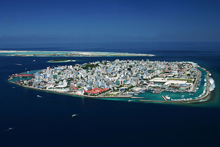
Building Trust in AI through Justice


Array
(
[thumbnail] => https://s42831.pcdn.co/wp-content/uploads/2022/09/hero-placeholder-150x150.png
[thumbnail-width] => 150
[thumbnail-height] => 150
[medium] => https://s42831.pcdn.co/wp-content/uploads/2022/09/hero-placeholder-300x129.png
[medium-width] => 300
[medium-height] => 129
[medium_large] => https://s42831.pcdn.co/wp-content/uploads/2022/09/hero-placeholder-768x329.png
[medium_large-width] => 768
[medium_large-height] => 329
[large] => https://s42831.pcdn.co/wp-content/uploads/2022/09/hero-placeholder-1024x439.png
[large-width] => 1024
[large-height] => 439
[1536x1536] => https://s42831.pcdn.co/wp-content/uploads/2022/09/hero-placeholder.png
[1536x1536-width] => 1400
[1536x1536-height] => 600
[2048x2048] => https://s42831.pcdn.co/wp-content/uploads/2022/09/hero-placeholder.png
[2048x2048-width] => 1400
[2048x2048-height] => 600
[gform-image-choice-sm] => https://s42831.pcdn.co/wp-content/uploads/2022/09/hero-placeholder.png
[gform-image-choice-sm-width] => 300
[gform-image-choice-sm-height] => 129
[gform-image-choice-md] => https://s42831.pcdn.co/wp-content/uploads/2022/09/hero-placeholder.png
[gform-image-choice-md-width] => 400
[gform-image-choice-md-height] => 171
[gform-image-choice-lg] => https://s42831.pcdn.co/wp-content/uploads/2022/09/hero-placeholder.png
[gform-image-choice-lg-width] => 600
[gform-image-choice-lg-height] => 257
)

Last week’s session of the Open Working Group on Sustainable Development Goals revealed a tension between the potential universality of the post-2015 agenda and a zero-sum mentality that has started to emerge in the debate.
The discussions, rather than focusing on potential goal areas, were centered on “means of implementation” (the ‘how’ of the development agenda) and “the needs of countries in special situations” – least developed countries (LDCs), landlocked least developed countries (LLDCs), small island developing states (SIDS), as well as African countries and middle income countries.
This discussion may be frustrating for those who are eager to get to goals on specific topics, but understanding and addressing the demands of these groups of countries will be crucial to the success of a post-2015 agreement. (Dr. Alastaire Alinsato and I recently authored a policy brief outlining the priorities for LDCs and other groups of countries, summarized in a video here.)
Worryingly, the concept of universality started to creak under the weight of various demands, and signs of a zero sum dynamic began to emerge in the discussions.
LDCs expressed concern that the global fight against poverty will lose primacy in a universal agenda. While there have been impressive gains in the fight against poverty globally, in LDCs almost half of the population still lives on less than $1.25 a day. As Alex Evans points out in a new study on the global partnership, while aid rose throughout the MDG period through 2010, it has since fallen, with aid to LDCs declining by about 12.8% compared to a 4% fall in ODA as a whole. Understandably, then, LDCs called for ODA to be allocated based on need, primarily to LDCs.
Middle income countries pointed out the challenges of the “middle income trap,” with slowed growth and stagnating productivity halting their rise to upper income status. They bemoaned the perils of increasing levels of inequality despite economic growth. An implicit unstated concern from MICs is that the post-2015 agenda will be totally irrelevant for them if it fails to address these issues.
African countries called for poverty eradication to remain at the core of the next agenda, accompanied by the development of productive capacity and industrialization. Meanwhile, SIDS wanted the framework to address their structural challenges and asked for a focus on climate and oceans.
The only way for a universal agenda to succeed is to understand that we must move from a zero sum dynamic to an understanding of development as a global challenge. Each country has a role to play, according to its own contexts and capabilities. To accommodate the needs of countries in very different circumstances, it is important to distinguish between needs and the best means with which to meet those needs. We must employ all of the tools available to us to achieve sustainable development.
ODA is not the only way to finance development, as the Committee of Experts on Sustainable Development Financing is discussing. As seen in the proposal floated for a BRICS bank, there is a major need for non-concessional financing, which can be met through public or private bank loans or bond markets. Meeting the global level of need will require changes in the international financial system, including IMF borrowing rules and administrative rules at multilateral development banks.
There are also private sector flows, innovative sources of financing, and domestic resource mobilization, as pointed out in last week’s OWG session by Mahmoud Mohieldin of the World Bank. Some tools may be better suited to some circumstances than others. For example, there is an argument that ODA is best directed to LDCs, and particularly to conflict-affected LDCs, where it is difficult to attract foreign direct investment or non-concessional financing because of the level of risk.
As Deb Bhattacharya of the Bangladesh-based Centre for Policy Dialogue pointed out last week, ODA will not be enough to bring about the structural transformation demanded by many LDCs. Long term stable financing will be needed to build sustained, equitable and inclusive economic growth.
In order to advance the post-2015 discussions, we must distinguish the needs of countries from the various ways in which we can address those needs. A key component will be the reformulation of a global partnership, so that we address development as an international community and avoid an ‘every country for itself’ scenario. For a transformative and universal post-2015 agenda, we will all need to work together – and with all of the many tools we have available – to bring about a better world in 2030.
Publication Date:
Dec 17, 2013
Topic(s):
Post 2015 Development
Program(s):
Pathfinders for Peaceful, Just and Inclusive Societies


Subscribe to our newsletter and receive regular updates on our latest events, analysis, and resources.
"*" indicates required fields